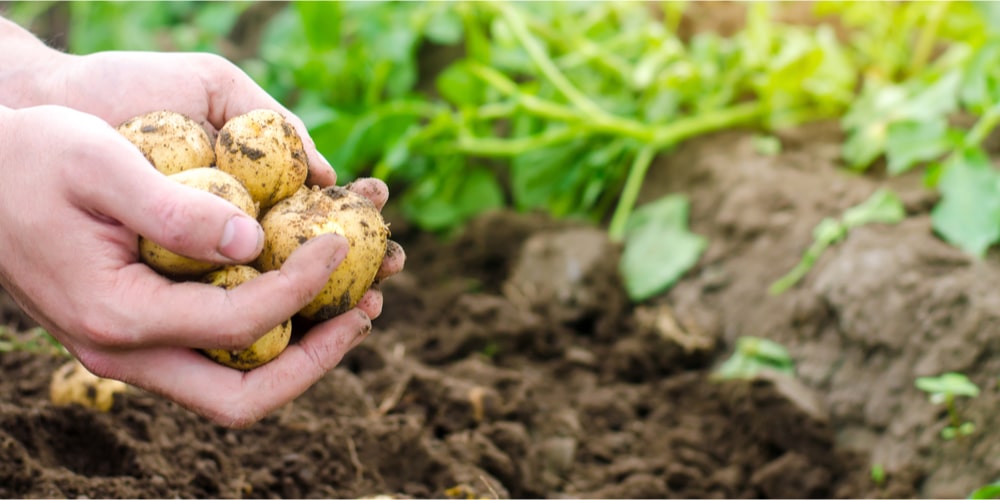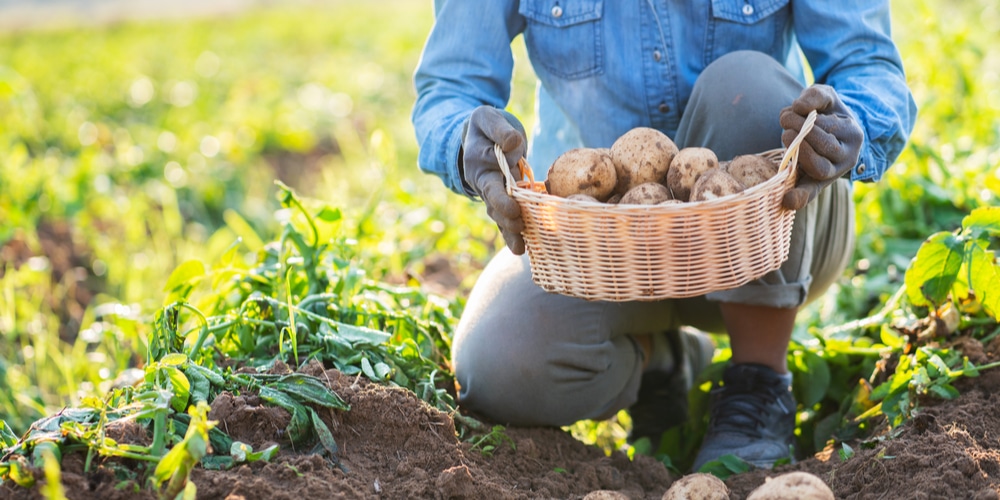Potatoes are one of the most common vegetables that are used in different types of cuisines. If you are trying to grow potatoes at your home, then you need to have a proper idea about growing potatoes successfully. Though many people think of the potato as a root, it is actually an underground storage stem which is also called tuber. There are several questions that come to your mind when you are looking forward to growing potatoes in your garden, especially ‘How Much Water do Potatoes Need?’
Well, the potatoes can need different amounts of water in different situations, based on different climatic factors. To know more, read on as we have provided a complete watering guide for your potato plants.
How Much Water do Potatoes Need?
Potatoes prefer moist soil. They grow best when the soil is properly watered. It needs 2 inches to 3 inches of water every week and you need to make sure that it is not drying out. You must deeply water the potato plants. You have to ensure that about 8 inches to 10 inches of underground soil remain completely moist. Having said these, we also will like to mention that you shouldn’t overwater the potato plants for at least 2 weeks from the time of planting. You have to water the plant once every 4 days or 5 days in the first two weeks right after planting. After that, you have to water the potato plant once every one day or two days for the next 6 to 8 weeks.
Water and drainage for growing potatoes
When it comes to growing potatoes, you need to be very careful about the water supply as well as the soil. Though potatoes need a good amount of water to keep the soil moist for a long time, you need to make sure that you are planting the potato plants in a soil with a good drainage system. Even if you are planting the potatoes in a pot or a rubber, you have to artificially drill some holes into the pots and the rubber for thorough drainage. The soil must be able to breath and drain to ensure proper growth and development of the potatoes under the soil.
When to stop watering your potato plants?
The most important thing that you need to know while watering your potato plant is to know when you need to stop watering it. There are two choices about when to stop water:
Before Harvesting
You must stop about 2 weeks before you plan to harvest the potatoes from the plant. Give it a 2-week time without watering. So, after 14 days when you stop watering, you can go ahead and start harvesting.
When vines turn yellow
You need to stop watering as you notice that the potato vines are turning yellow gradually and have started to fall off the tree naturally.
In either of the two situations, you have to stop providing water to the potato plants completely. The natural rainfall can happen but that will not worry you much.
Why should you stop watering before harvesting?
You must be wondering why it is important to stop watering the potato plants right before harvesting. Yes, as mentioned above, it is important to stop providing water to the plants at least 14 days before the harvesting time. This will let the soil dry up which can help the potatoes to cure. They can get themselves ready to be harvested. When the moisture will dry out from the soil, the potato skin will get tough. Hence, it will be easier for you to pull out the potato from the soil without damaging the outer layer. When the potatoes come out of the soil without any damages, it has better longevity and can last longer in storage.
How Much Water do Potatoes Need?: Conclusion
If you are trying to grow some potatoes in your home garden, it is quite easy. They don’t need a lot of care or maintenance. But you need to know exactly how much water your potatoes need. Hopefully, from the above guide, it is completely clear to you about how much water your potato plant needs and how often you should water them or when you must stop watering them. Watering being the most important aspect of any plant growth, you have to take extra care while you are growing your own vegetation in your home garden.

